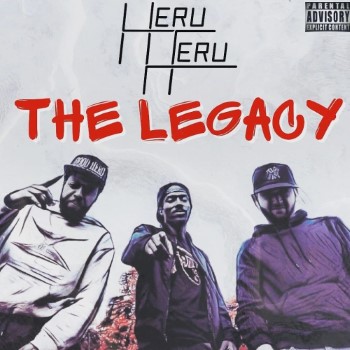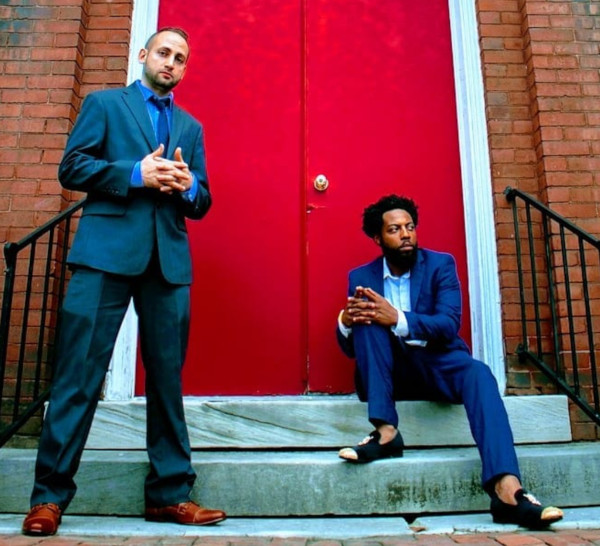
With beginnings tied to the freestyle rap sessions that popped up around MTSU’s James Walker Library in the twenty-teens, West Nashvillian hip-hop duo Heru Heru (along with Nashville producer and DJ Konscience Beatz), has independently released its second full-length album, The Legacy, in October 2021, following 2019’s community-establishing debut, Heal Hop, and 2020’s Cashvillians EP.
This lineage of releases has conveyed Heru Heru’s thoughtful brand of “heal-hop,” locally-sourced, relatable wisdom and comfort through “the healing power of hip-hop.” The most recent addition to their civic-minded catalogue, The Legacy, gives “heal-hop” an even bigger task at hand, coming out of a Nashville of the past two years.
Together, Heru Heru presents the socially connected dynamic along with rap stylings likened to Yasiin Bey and Talib Kwali’s Black Star, The Roots, Run the Jewels and other nationally acclaimed intellectual rappers formed in larger U.S. cities, resembling acts like these more than typical Nashvillian rappers of the last decade.
Individually, Foundation Mecca brings the culture of a modern, Nashvillian black man, supplying a lifetime of experience and geographically tailored goals in lyric, with remarkably similar flows to Common and Drake (but not at the same time). Ah-Deli is of Persian descent, and also brings a well-read and traveled aspect. His background is as easily noticed in his own references as Foundation Mecca’s background is in his references. That unique diversity is part of Heru Heru’s neighborhood-unifying curiosity and intrigue, adding to their legitimacy as macro-idea lyricists.

We bring the truth to make the devil hide, Ah-Deli says in The Legacy’s outstanding, minute-and-a-half lyrical oasis “Make the Devil Hide.”
A large portion of the “truth” in The Legacy seemingly revolves around the duo touting accomplishments and expressing class-jumping ambitions, which could poke a hole in the “heal-hop” bubble. The Legacy’s cultural references, intellectual presentation and “heal-hop” label come across at times as the frilly stereotypical hubris young men can develop after navigating the hip-hop world for a couple of years. It’s hard to hide when promising hope, up front. Al-Deli’s lyrics in “Letting Me In” are a perfect example of tact and ethics that dismiss opportunity to relieve community hardship, or direct unification towards a larger goal, as “heal-hop” seemingly boasts it can do. (And, all coming out of a Music City that’s been bombed since Heru Heru first began producing content.)
The album sounds great, in most respects, though.
Production-wise—like the chipmunk vocals stapled to early Kanye West records, giving listeners something unique to remember and recognize—DJ Konscience Beatz crafts drum machine ticks to a speedy arrhythmia around the corners, giving Heru Heru’s beats puppeteer power to hold the listener’s breath in anticipation and attention before Foundation Mecca or Al-Deli proceed into the next bar.
Heru Heru’s diversity appears in Konscience Beatz’ reach for samples, too, ranging from Brazilian beat-artist Dyza’s 2020 “The Heresy of Sainte Germaine” in “Plottin’ on the Low”—which places hip-hop ambitions over proposing marriage—all the way to Andy Gibb’s 1977 hit “Love Is Thicker Than Water,” neatly sampled in “Make the Devil Hide.”
Heru Heru’s The Legacy is worth the find if you’re into good local hip-hop. Find it on Spotify, Apple Music, iTunes, Amazon, YouTube and Deezer. Find all of the members on Instagram (@ahdelihiphop, @officialfoundationmecca and @knosciencebeatz) and for more information, visit heruheruhiphop.com.













